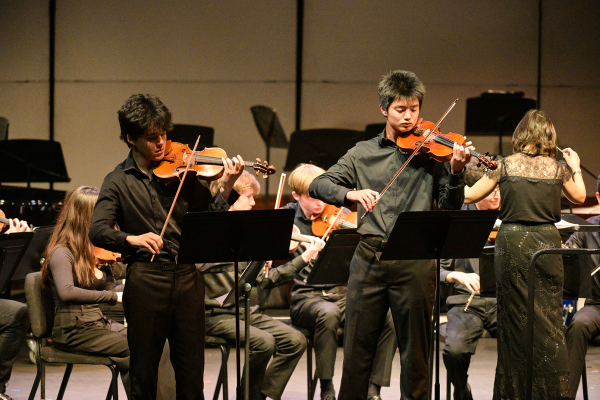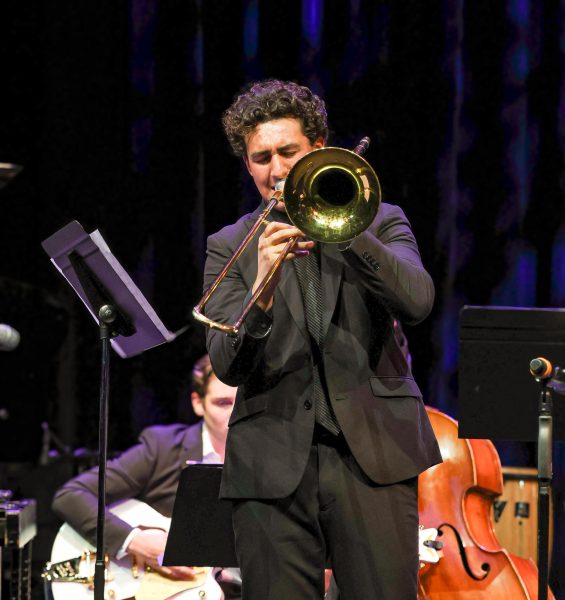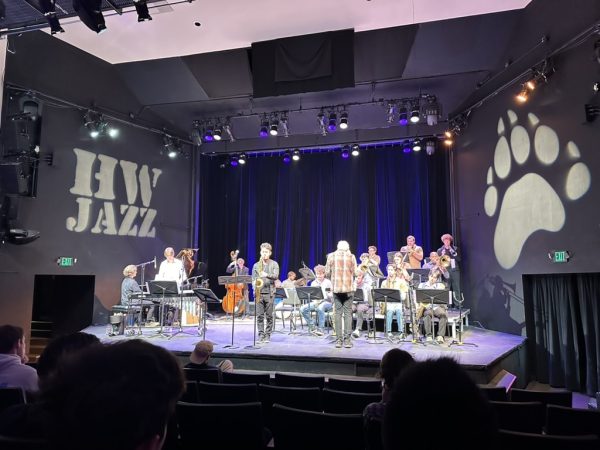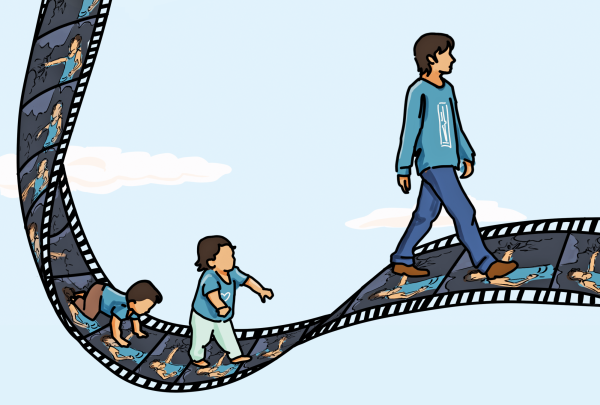Happier Than Ever review

August 25, 2021
From Billie Eilish’s first EP at 15, to her latest album at 19, Eilish’s fans have watched the singer evolve with every piece of work she releases. Her listeners have followed her transformation from a green-haired, baggy-clothed, edgy teen to a blonde, simply-styled, mature young adult.
This past year, as Eilish redefined her look, she channeled a fresh energy into her music. Eilish’s long-anticipated album, “Happier Than Ever,” was released in late July. After debuting a series of singles off of the album, she dropped her “Lost Cause” music video in early June. The video received a wave of backlash on Youtube for seeming to use sexualization as a form of female empowerment. Each of these efforts, including her album, were intended to completely shift her public image.
Unfortunately, her drastic album style change simply did not work. Eilish’s new album deviates from her previous edgy, goth style. Although glimpses of Eilish’s artistic voice are a part of the album, her inexperience with these new styles is apparent. And when she reverts to her older methods, they are repetitive, lifeless versions of the songs that originally carried Eilish to fame. In these new songs, she sings about her life experiences as an international icon, rather than the emotions correlated with her struggles, making each track significantly less relatable.
Each song in the “Happier Than Ever” album falls into one of three categories: remakes of old songs, failed, new experimental songs and the exceptions. Despite the disappointing majority of her album, the songs in the third category hit her usual mark and were far from letdowns.
Mundane, Overplayed Billie: “Getting Older,” “my future,” “Halley’s Comet,” “Overheated” and “Everybody Dies”
Music producer, co-songwriter and brother to Eilish FINNEAS is impressive from a technical perspective on this album, utilizing never-before-seen background beats. However, the songs are unimpressive when compared to the rest of her discography. Her quiet voice sounds recycled and while her lyrics reach for meaning, they feel too simple to be relatable. The songs are completely monotone in both pace and voice, making each track indistinguishable from the next. Although “Your Power” could fit into this category, it deserves credit for meeting her usual standard of emotionally connecting to listeners because of her cleverly ambiguous metaphors
Failed, Experimental Billie: “I Didn’t Change my Number,” “Billie Bossa Nova,” “Oxytocin,” “Not My Responsibility”
These songs are Eilish’s attempt at experimenting with different styles of music such as Jazz, Electronic Dance Music (EDM) and monologues. While Eilish clearly envisions for this album to be a more mature version of her work, each song feels sloppily prepared. This is unlike her previous album, “When we all fall asleep, where do we go?” where her voice and persona blend together. Particularly in “Not My Responsibility,” Eilish’s body-positive message feels poorly articulated and seems desperate to impact her impressionable fanbase. She lacks creativity, and there is not an ounce of metaphorical meaning in the lyrics.
The Hits : “Happier Than Ever,” “Therefore I Am” and “GOLDWING”
Despite the disappointment of the first two categories , the album has a few unforgettable successes. The title track, “Happier Than Ever,” demonstrates Eilish’s ability to successfully explore different genres. She is able to smoothly transition from her usual soft-spoken voice to a loud, thunderous rockstar.
Ultimately, Eilish was just trying too hard. “Happier Than Ever” was a swing and a miss. She attempted to perform something so far-fetched that only a sparing amount of it could come out moderately good. In her previous successful albums, Eilish set high expectations for herself, and unfortunately, the album was a letdown to her fanbase.








































